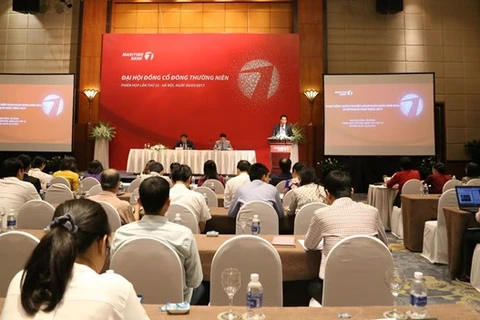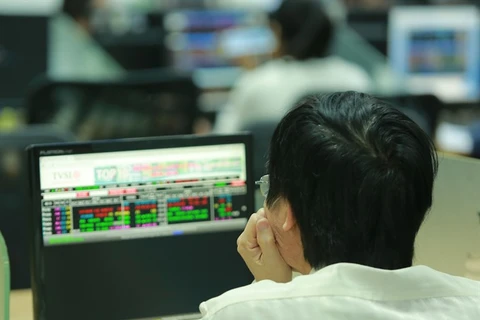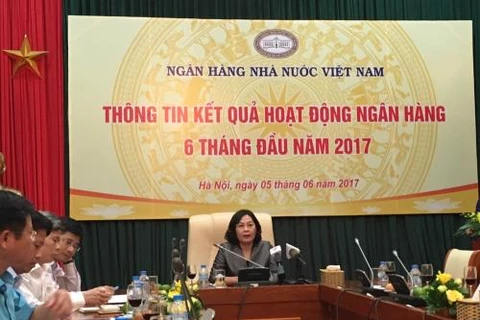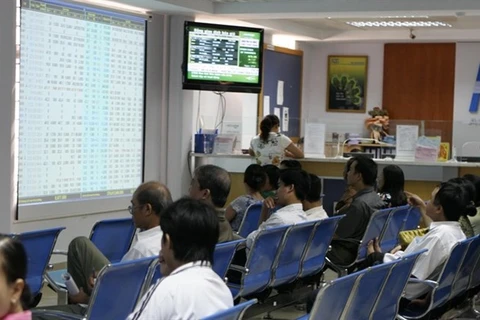Hanoi (VNA) - The Vietnam International Arbitration Centre (VIAC) organised a workshop on June 6 with the International Finance Corporation (IFC) to promote the use of alternative dispute resolution (ADR) methods in the banking and finance sector.
The conference, named ‘Benefits and Challenges of Using ADR for Banking Disputes’, focused on the principles, conditions and procedures of commercial mediation as an ADR method, as well as the conditions for establishment of mediation centres in Vietnam and the implementation of Decree 22 on commercial mediation, which has been in effect since April 15, 2017.
According to the decree, the settlement of disputes via trade reconciliation must ensure the principle of voluntarism and equality in terms of rights and duties between parties to the disputes who participate in reconciliation, said Nguyen Thi Mai, Deputy Head of the Justice Support Department.
In recent years, global banks and financial institutions have considered many ADR methods like Meditation and Arbitration as an effective way to solve disagreements. According to Tran Huu Huynh, VIAC’s Chairman, this trend arose due to the need for a customised dispute resolution mechanism for the financial sector which must also ensure efficiency and promptness.
Truong Thanh Duc, Chairman of the Legal Club Bank of the Vietnam Bank Association, agreed with Huynh, saying that on average, a financial or credit dispute takes the litigation court two to three years to reach a final ruling. An arbitration court should take only five to six months. And even at a normally higher legal fee, arbitration methods have proved more effective and specialised than the traditional court, particularly in cases involving foreign entities.
Nina Mocheva, a World Bank Dispute Resolution Specialist, said at the conference that World Bank had been working closely with Vietnam and the VIAC since 2013, and that they are deeply impressed by the country’s arbitration modernisation.
However, Mocheva also raised her concern over the temporary lack of legal framework and practical application of ADR methods in Vietnam.
In response to Mocheva’s insight, Mai suggested a number of possible improvements, such as the Supreme People’s Court of Vietnam taking responsibility in encouraging firms and organisations working in the financial dispute resolution field to popularise ADR methods, and the Ministry of Justice proactively completing an absolute and uniform trade dispute resolution legal framework. She was also in favour of involved parties solving disputes through negotiation and appeasement before taking matters to court.
Similar to arbitration, commercial mediation is only applicable when concerned parties have entered a mediation agreement before or after the dispute has arisen, or at any point during the dispute resolution process.
The conference included two discussion panels in which representatives from commercial banks, credit organisations and legal firms discussed the future of ADR methods in Vietnam with the speakers.
Michael Hwang, member of the Chartered Institute of Arbitrators, proposed a comprehensive approach to ADR, with trade mediation support from both the Vietnamese government and courts.
Hwang recommended ADR methods in commercial arbitration on the ground of both parties being able to employ lawyers of choice, which proves effective for both financial institutions and financial service users.
At the conference, VIAC’s Deputy Secretary General Phan Trong Dat also introduced a model arbitration clause reserved for the banking and credit sectors, divided into two categories for credit contracts and contracts of guarantee in order to cover all credit activities.-VNA
The conference, named ‘Benefits and Challenges of Using ADR for Banking Disputes’, focused on the principles, conditions and procedures of commercial mediation as an ADR method, as well as the conditions for establishment of mediation centres in Vietnam and the implementation of Decree 22 on commercial mediation, which has been in effect since April 15, 2017.
According to the decree, the settlement of disputes via trade reconciliation must ensure the principle of voluntarism and equality in terms of rights and duties between parties to the disputes who participate in reconciliation, said Nguyen Thi Mai, Deputy Head of the Justice Support Department.
In recent years, global banks and financial institutions have considered many ADR methods like Meditation and Arbitration as an effective way to solve disagreements. According to Tran Huu Huynh, VIAC’s Chairman, this trend arose due to the need for a customised dispute resolution mechanism for the financial sector which must also ensure efficiency and promptness.
Truong Thanh Duc, Chairman of the Legal Club Bank of the Vietnam Bank Association, agreed with Huynh, saying that on average, a financial or credit dispute takes the litigation court two to three years to reach a final ruling. An arbitration court should take only five to six months. And even at a normally higher legal fee, arbitration methods have proved more effective and specialised than the traditional court, particularly in cases involving foreign entities.
Nina Mocheva, a World Bank Dispute Resolution Specialist, said at the conference that World Bank had been working closely with Vietnam and the VIAC since 2013, and that they are deeply impressed by the country’s arbitration modernisation.
However, Mocheva also raised her concern over the temporary lack of legal framework and practical application of ADR methods in Vietnam.
In response to Mocheva’s insight, Mai suggested a number of possible improvements, such as the Supreme People’s Court of Vietnam taking responsibility in encouraging firms and organisations working in the financial dispute resolution field to popularise ADR methods, and the Ministry of Justice proactively completing an absolute and uniform trade dispute resolution legal framework. She was also in favour of involved parties solving disputes through negotiation and appeasement before taking matters to court.
Similar to arbitration, commercial mediation is only applicable when concerned parties have entered a mediation agreement before or after the dispute has arisen, or at any point during the dispute resolution process.
The conference included two discussion panels in which representatives from commercial banks, credit organisations and legal firms discussed the future of ADR methods in Vietnam with the speakers.
Michael Hwang, member of the Chartered Institute of Arbitrators, proposed a comprehensive approach to ADR, with trade mediation support from both the Vietnamese government and courts.
Hwang recommended ADR methods in commercial arbitration on the ground of both parties being able to employ lawyers of choice, which proves effective for both financial institutions and financial service users.
At the conference, VIAC’s Deputy Secretary General Phan Trong Dat also introduced a model arbitration clause reserved for the banking and credit sectors, divided into two categories for credit contracts and contracts of guarantee in order to cover all credit activities.-VNA
VNA

























